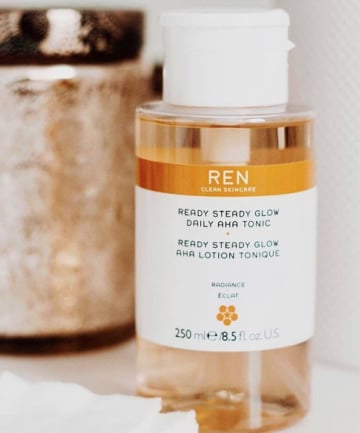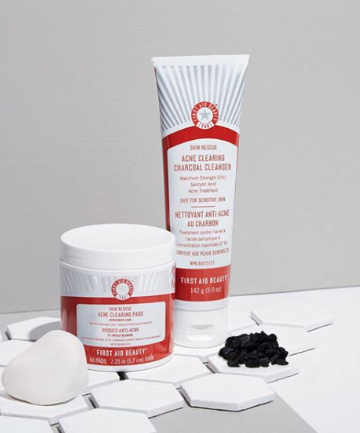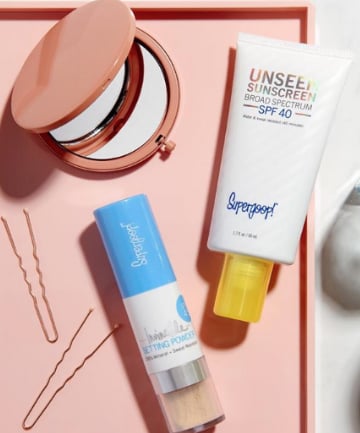Can they be mixed? No
This might sound a little kooky, but Patel breaks it down: "Acids by nature have a low pH and if they are layered under products that are basic in pH, they will become less active." You know what's typically basic? The tap water you wash your face with every day. "Properly drying your face and rinsing off soap (which is also alkaline) will help your various skin care acids work better," she explains.
Image via @renskincare
This might sound a little kooky, but Patel breaks it down: "Acids by nature have a low pH and if they are layered under products that are basic in pH, they will become less active." You know what's typically basic? The tap water you wash your face with every day. "Properly drying your face and rinsing off soap (which is also alkaline) will help your various skin care acids work better," she explains.
Image via @renskincare
Can they be mixed? Depends
"If you layer salicylic acid or benzoyl peroxide with a retinol or AHA, that is risking irritation and skin barrier breakdown," says Gohara. She recommends using one in the morning and the others in the evening to avoid irritation. She also notes that "benzoyl peroxide formulations can inactivate some retinols," which makes separation more important. Of course, salicylic acids and benzoyl peroxide are often used in conjunction with each other — just be sure to use caution when it comes to retinol and AHA products.
Image via @firstaidbeauty
"If you layer salicylic acid or benzoyl peroxide with a retinol or AHA, that is risking irritation and skin barrier breakdown," says Gohara. She recommends using one in the morning and the others in the evening to avoid irritation. She also notes that "benzoyl peroxide formulations can inactivate some retinols," which makes separation more important. Of course, salicylic acids and benzoyl peroxide are often used in conjunction with each other — just be sure to use caution when it comes to retinol and AHA products.
Image via @firstaidbeauty
Can they be mixed? Yes, but do it right
Since retinol, AHAs, salicylic acid, etc. can all cause increased sun sensitivity, a good sunscreen is clutch. However, don't go adding it in willy-nilly. Products with SPF 30 and above actually don't mix well with most active ingredients. The key is to "layer the sunscreen OVER the product with active ingredients," explains Patel.
Image via @supergoop
Since retinol, AHAs, salicylic acid, etc. can all cause increased sun sensitivity, a good sunscreen is clutch. However, don't go adding it in willy-nilly. Products with SPF 30 and above actually don't mix well with most active ingredients. The key is to "layer the sunscreen OVER the product with active ingredients," explains Patel.
Image via @supergoop







